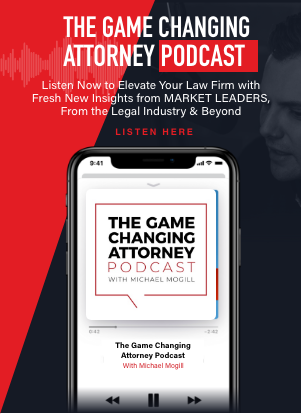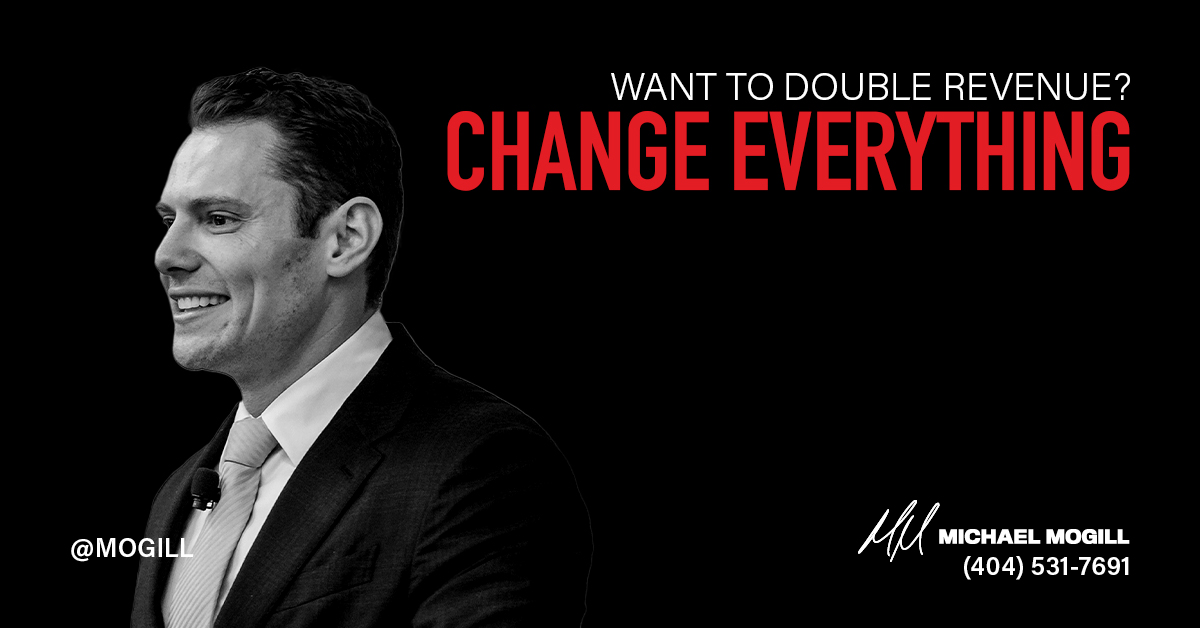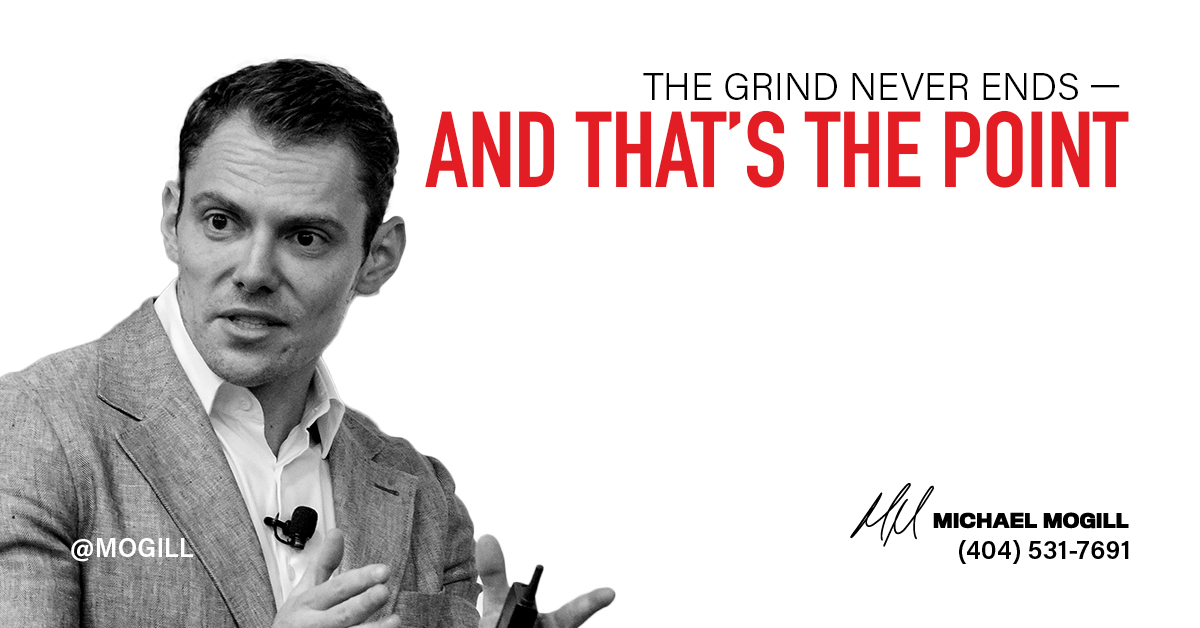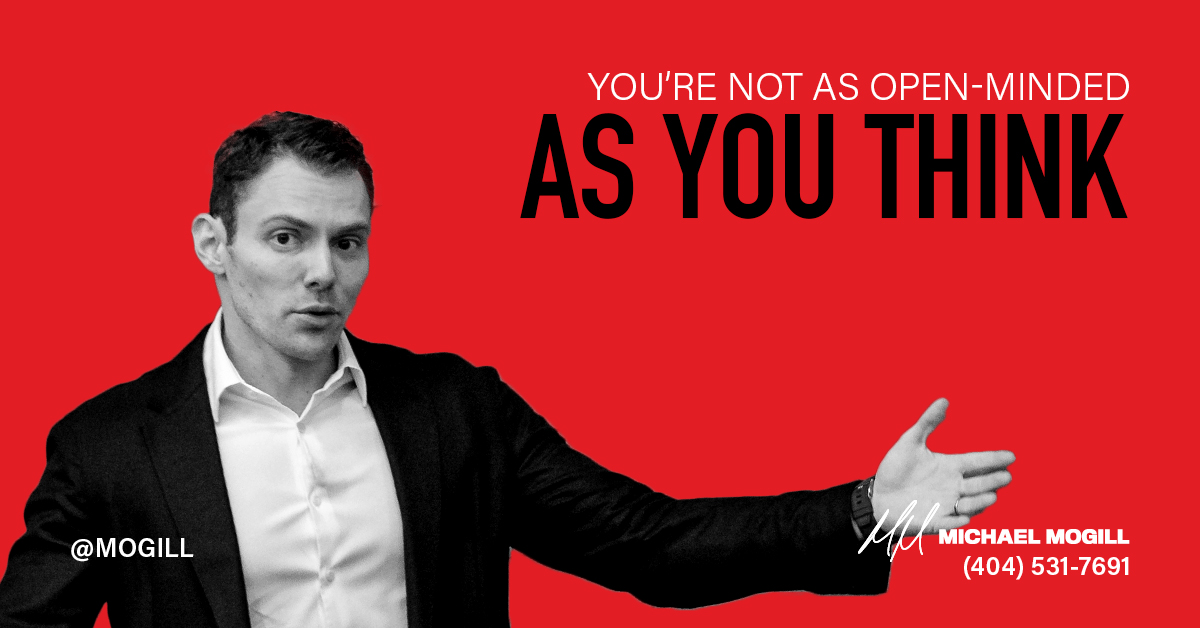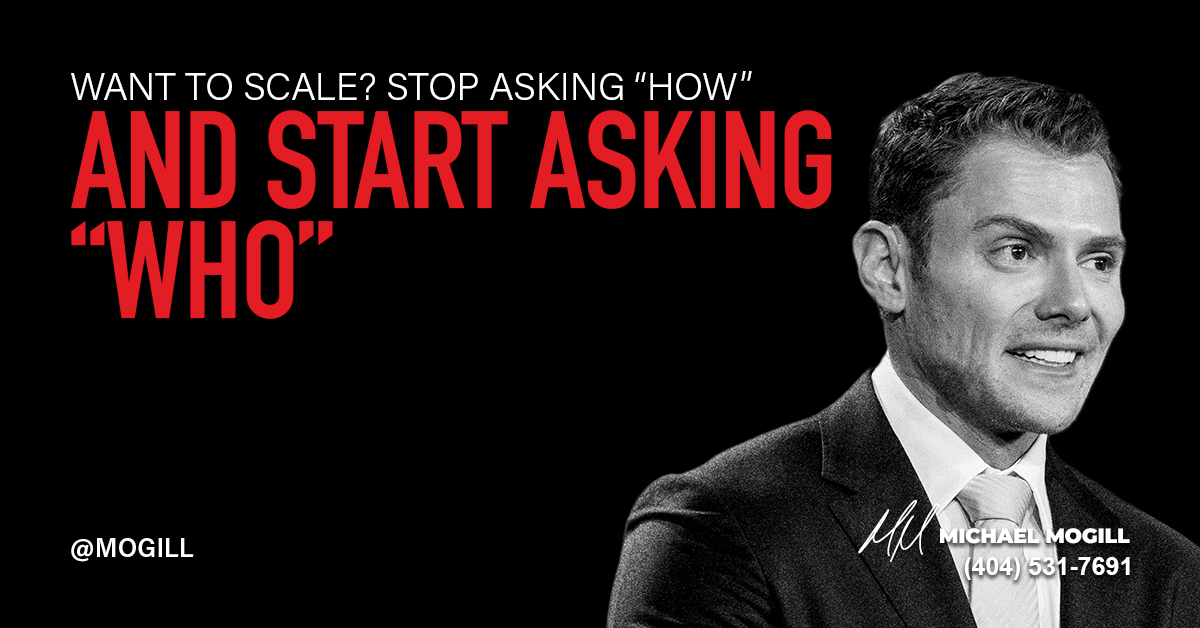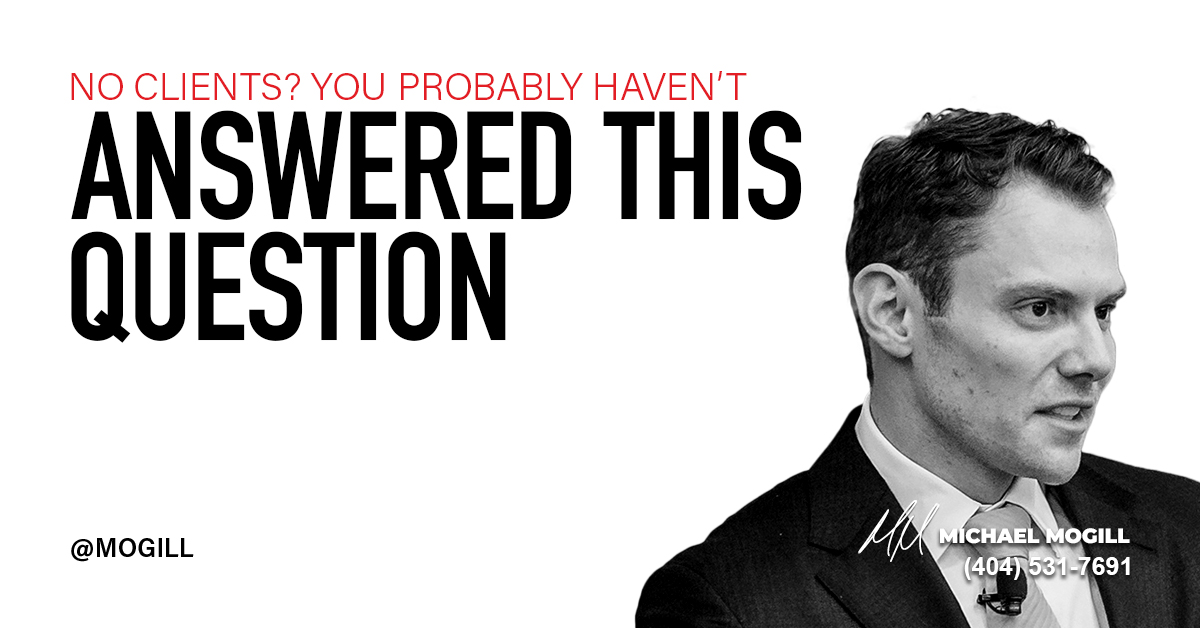The following is adapted from The Game Changing Attorney by Michael Mogill.
Bad marketers try to win with frills, gimmicks, and screaming headlines.
Good marketers know that storytelling is the key to connecting with your audience. But even the good marketers among us can probably learn a thing or two from the great marketers.
To see the power of storytelling in action, just tune into HBO in the twenty-four hours leading up to a boxing match. Their content is packed with brief vignettes exploring the personal lives of their fighters—their personal struggles, the many challenges they had to overcome, and what this fight means to them and their families.
HBO shares these segments not because they’re lacking for content, but because they know these stories help their viewers connect and want to tune in.
As an attorney, you may not fight for the title, but your job is the same: tell your story. Give your audience a reason to care. Show the world what sets you apart from the competition and why they should hire you over the other legal choices they have.
To quote Trial Lawyers Hall of Famer Gerry Spence: “Lawyers must be storytellers. This is what the art of advocacy comes down to. The telling of the true story of one’s case.”
In this article, we’ll see why storytelling trumps reputation and presentation, the science behind good stories, and the four facets of an effective story.
Reputation Isn’t Enough
It might seem counterintuitive, but law firms can’t compete solely on how many cases they’ve won, how many partners they have, or how big their marketing budget is.
Yes, these elements matter when it comes to experience and execution.
However, none of them give prospective clients a sense of who you are as a human being or the personal experiences that brought you into this profession.
Too many lawyers forget their clients aren’t simply buying legal services; they’re investing in their lawyer as a human being. If they can’t connect with you, if they don’t have a sense of what drives you, then they have no reason to hire you.
Too often, I see speakers give presentations where they’re focused less on what they’re saying and more on making sure their presentation is polished and perfect.
Yes, presentation matters. However, if it’s all style and no substance, if you don’t share who you really are with your audience, you’re going to come across as inauthentic.
The Science Behind Storytelling
Storytelling is powerful because it taps into the interplay between the logical mind and the emotional heart. Connecting to the audience’s emotions is where your message finds strength. Appealing only to logic decreases your chances of success.
Storytelling takes prospective clients on an emotional journey that allows them to discover for themselves what feels right, best, and most advantageous to them.
According to research at UC Berkeley, stories affect us on a neurochemical level. When we hear a good story, our brains release oxytocin, which promotes feelings of trust, empathy, and volunteer cooperation. In fact, if someone tells you a good story, your brain will be pumping so much oxytocin you won’t know what to do with yourself.
Think of that sense of elation you get when Rocky Balboa takes the beating of his life, perseveres, and eventually comes out on top in your Rocky movie of choice.
Or how about the opening vignette in Up? Without using a single word, it tells a moving, heart-wrenching story about a couple deeply in love that plays with our emotions.
This same principle works in legal advertising as well.
When prospective clients know your story, where you came from, what you do, and why you do it, they begin to form a relationship with you. They feel connected to you. This feeling is what motivates them to pick up the phone and call you.
Storytelling Made Simple
Storytelling doesn’t have to be some big, intimidating concept. Most good stories have a few common elements that you can harness for your own legal marketing:
Establish a connection with your firm’s story and unique value proposition.
Start with something that sets the tone, something people can relate to and agree upon, such as a legal problem. In terms of video, this could include cinematic images and epic music followed by powerful sound bites to draw the viewer in: “When charged with a crime, you’re facing the weight of the government. They have all of the money, all of the resources, and these charges and convictions can have life-lasting consequences.”
Build trust and rapport through client testimonials.
Increase tension with difficulties the characters must overcome.
Often, this would be the difficulties clients face—an injury, a criminal charge, divorce, etc. For a criminal defense attorney, for instance, this could be something like, “All you have is the decision-making power to find the right attorney… When you’re charged with a crime, you now have the scarlet letter.”
Communicate knowledge and expertise through results and experience.
Climax where characters begin to overcome a looming crisis, such as the client choosing to hire you in their time of need. This is a great place for a testimonial with a past client saying something along the lines of, “When looking for some peace in my life, and reaching out for a vine to grab on to, this was it.”
Provide hope and inspire action.
Describe how you can help, discuss likely case results, and offer an explanation of your services. Explain how you work to provide the best possible outcome for your clients.
The Big Takeaway
It really is that simple to tell your story. Don’t overlook the importance of storytelling, try to make up for it with reputation, or make it more complicated than it is.
Remember: without a story, you’re just another lawyer.
For more advice on telling your story as a lawyer, you can find The Game Changing Attorney on Amazon.
Michael Mogill is Founder and CEO of Crisp Video Group (www.crispvideo.com), the nation’s fastest-growing legal video marketing company and the author of the “The Game Changing Attorney” (available on Amazon). He’s helped thousands of attorneys — from solo and small firms to large practices — differentiate themselves from competitors and earn millions in new revenue. Crisp has been named to the Inc. 500 list of America’s fastest-growing companies and has been awarded Best Places to Work. A sought-after speaker, Michael often presents at national conferences on innovative ways to create exponential business growth. His advice has been featured in publications such as Forbes, Inc., Avvo, ABA Journal, The Trial Lawyer, Huffington Post, and Wall Street Journal.

